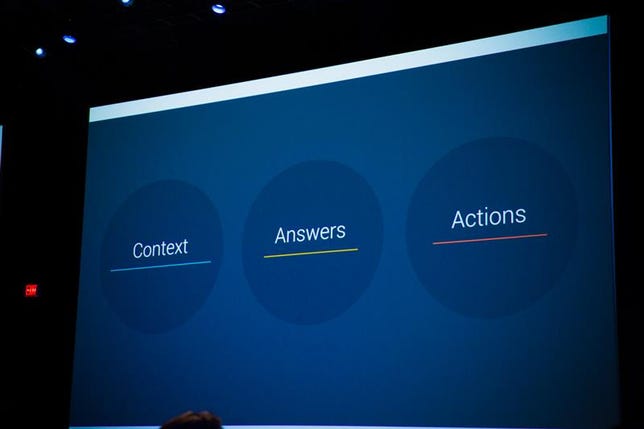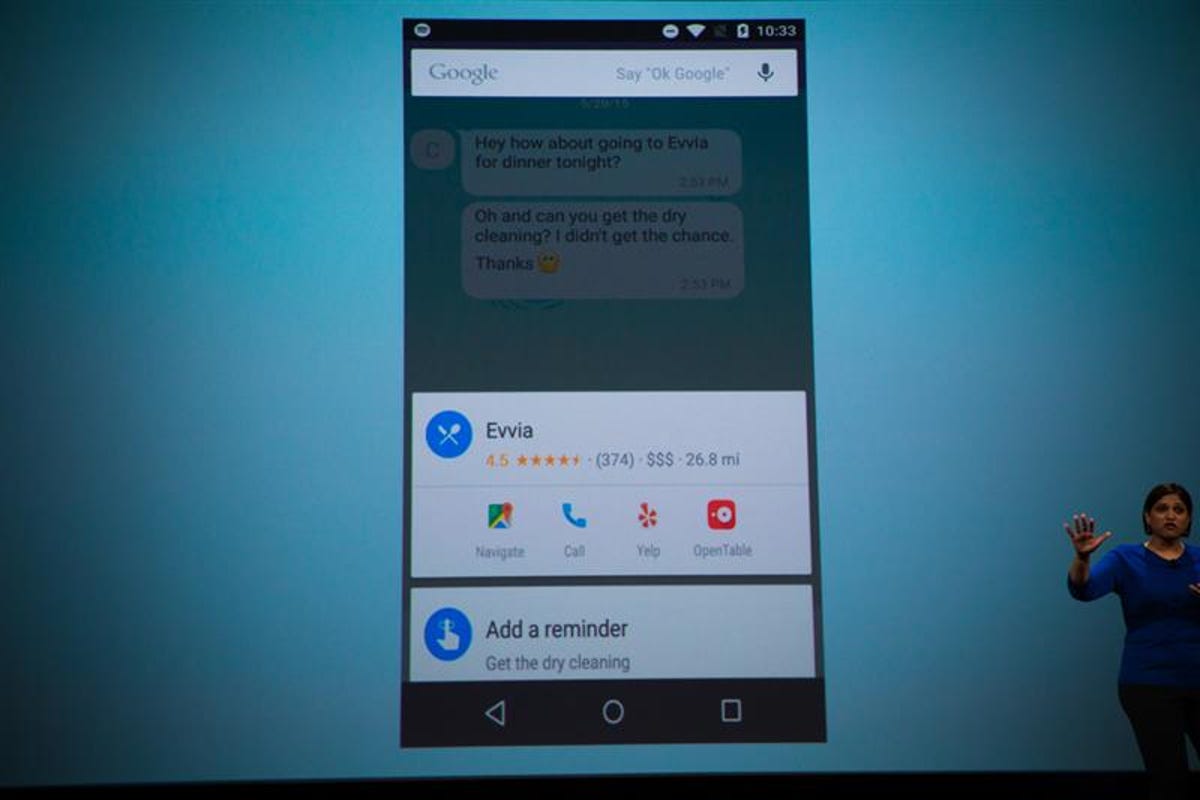
Photo by James Martin CNET
At the Google I/O keynote today, Aparna Chennapragada, Director of Google Now announced that there are some significant changes on the way for Google Now, the notification system which draws data from several sources to bring you contextual messages useful in your current location.
To do this, Chennapragada said, the app needs to understand your context. Next, it has to bring answers proactively – without you asking for it. Finally, it has to help you take actions to improve the situation.
The Google Now team has been working on making all these functions easier and expand to more data sources like third-party apps. A new capability called Now On Tap, provides you with more information than you could get before.
Think of Google Now On Tap as a sort of “Help me, Google” button. As an example, you might get a text message where your wife mentions where tonight’s dinner plans are, and that you need to pick up the dry cleaning. With a long press on the Home button, you’ll suddenly be presented with information about the restaurant, and a prompt to create a reminder about the dry cleaning.


Now playing:
Watch this:
Now on Tap makes Google Now smarter
1:18
In other words, you don’t have to say anything at all; Google Now On Tap will automatically gather from what you’re currently viewing and give you relevent info about it.
Google Now, first launched in July 2012, is a service that tries to present you with relevant information before you ask for it. It does this by looking at things like your search history or email or your phone’s GPS data — for example, if you’re in a restaurant or driving in a car — to suggest content that might be useful (like a menu item or directions home.)


Photo by James Martin/CNET
Google has been focused on expanding its search service beyond having a user type in a query and getting ten blue links as a response. That’s because people are increasingly migrating to smartphones instead of laptop computers, and searching on the smaller screens of mobile devices can be more difficult.
Several tech giants have been working on these next-gen search services. Apple has been trying to beef up its Siri digital assistant to make the service smarter. Microsoft announced on Wednesday that its digital assistant, called Cortana, would be coming to Apple’s iOS devices and devices running Android. Yahoo has also been investing in the area with a service called Aviate, which takes over an Android phone’s home screen to present a combination of information from apps on your phone as well as Yahoo’s search engine.
See all of today’s Google news.
Rich Nieva contributed to this report.




